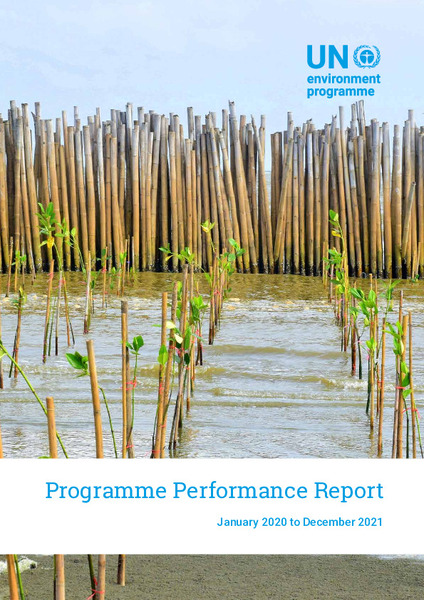Problems And Prospects Desertification of Desertification Control in the ESCAP Region

Date
1983Author
United Nations Environment Programme
Economic and Social Commission for Asia and the Pacific
Citation Tool
Bibliographic Managers
RT Generic T1 Problems And Prospects Desertification of Desertification Control in the ESCAP Region A1 United Nations Environment Programme, Economic and Social Commission for Asia and the Pacific YR 1983 LK https://wedocs.unep.org/20.500.11822/28263 PB AB TY - GEN T1 - Problems And Prospects Desertification of Desertification Control in the ESCAP Region AU - United Nations Environment Programme, Economic and Social Commission for Asia and the Pacific Y1 - 1983 UR - https://wedocs.unep.org/20.500.11822/28263 PB - AB - @misc{20.500.11822_28263 author = {United Nations Environment Programme, Economic and Social Commission for Asia and the Pacific}, title = {Problems And Prospects Desertification of Desertification Control in the ESCAP Region}, year = {1983}, abstract = {}, url = {https://wedocs.unep.org/20.500.11822/28263} } @misc{20.500.11822_28263 author = {United Nations Environment Programme, Economic and Social Commission for Asia and the Pacific}, title = {Problems And Prospects Desertification of Desertification Control in the ESCAP Region}, year = {1983}, abstract = {}, url = {https://wedocs.unep.org/20.500.11822/28263} } TY - GEN T1 - Problems And Prospects Desertification of Desertification Control in the ESCAP Region AU - United Nations Environment ProgrammeUnited Nations Environment Programme, Economic and Social Commission for Asia and the Pacific UR - https://wedocs.unep.org/20.500.11822/28263 PB - AB -View/Open
Item Statistics
Display item statisticsMetadata
Show full item recordDescription
Desertification has always been one of the major environmental problems of the developing countries in Asia as well as Australia. To focus world attention on this serious problem, the United Nations Conference on Desertification was convened in 1977 and adopted a Plan of Action to Combat Desertification for promoting and catalysing concerted efforts to counter this disaster. Echoing the recommendations of the Con- ference, the United Nations General Assembly, in its resolution 32/172, requested the regional commissions to support national efforts and co-operate with governments in their plans to combat deser-tification. In response, ESCAP organized a Technical Workshop in October 1981 to consider the steps taken by the Governments of the region to implement the Plan of Action.
After reviewing the problems, progress and prospects in combating desertification, the Workshop felt that the order of priorities of the Plan of Action should be rearranged so as to ensure more efficient use of resources while recommending a series of activities in research, monitoring, training and information for concerted action at the regional level.
Collections
Document Viewer
To read more, scroll down below.
Related items
Showing items related by title, author, creator and subject.
-
Northern Ireland Environmental Statistics Report, January
The Northern Ireland Environment Agency (NIEA); Central Statistics and Research Branch (CSRB) (The Northern Ireland Environment Agency (NIEA)Central Statistics and Research Branch (CSRB), 2009)In January 2009 a new ‘Northern Ireland Environmental Statistics Report,’ was launched. This report follows on from ‘Our Environment, Our Heritage, Our Future: State of the Environment Report for Northern Ireland’ which ... -
Programme Performance Report: January 2020 to December 2021
United Nations Environment Programme (2022-06)This report presents UNEP’s achievements during the two years of the 2020-2021 Programme of Work (PoW) under the seven subprogrammes: Climate Change, Resilience to Disasters and Conflicts, Healthy and Productive Ecosystems, ... -
Economics of Climate Change in Latin America and the Caribbean - Summary
United Nations (UN) - Economic Commission for Latin America and the Caribbean (ECLAC) (United Nations (UN) - Economic Commission for Latin America and the Caribbean (ECLAC), 2009)This document presents an aggregate economic analysis of climate change in Latin America and the Caribbean based on the national and subregional studies carried out on the topic in the region. It summarizes the results ...




